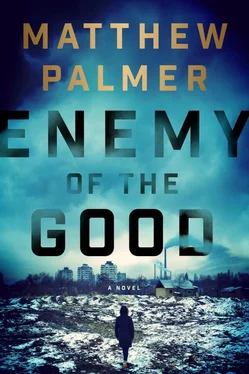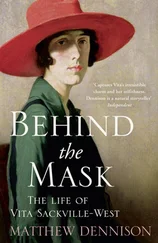Half an hour later, Zhyrgal’s sister arrived. She stood in the open doorway, leaning against the frame with a look on her face that seemed to combine amusement, irritation, and uncertainty. It was an eloquent expression.
“Hello, Kate,” she said in English.
“Hello, Val,” Kate replied in the same language.
“It’s been a long time.”
“You look good. “
This was a lie. Valentina Aitmatova was not an attractive woman. She was tall, almost six feet, and anorexically thin. Her face was so long that one of the boys at school had suggested cruelly that she had modeled for one of the giant heads on Easter Island. Val had laughed it off, but Kate had found ways to make the boy’s life miserable until he had apologized.
Many people grow out of their awkward teenage bodies. A few lucky ones transform into swans. Valentina was not one of them. Her features all seemed one size too big for her face. Her nose was both prominent and slightly off center. And her ears seemed set on her head at slightly different heights. But Val carried herself with confidence and style. She was wearing tight black jeans tucked into square-toed boots and a bright yellow silk blouse open at the throat. Her only makeup was a hot pink lip gloss.
Val walked over to her brother and kissed him softly on the cheek. She pulled a book out of her purse and set it on the table next to his wheelchair. It was a coffee-table book about football teams in England’s Premier League.
“Brother,” she said switching to Kyrgyz. “Kate and I need to talk. I’ll be back soon to see you. I promise.”
“Okay. Don’t be too long.”
Val turned to Kate and gave her an appraising look.
“Coffee?” she asked.
“That would be lovely.”
Val led Kate to a coffee shop across the street from the NeoMed clinic. It looked like a student hangout with an eclectic mix of mismatched tables and chairs and trendy young people serving espressos and cappuccinos to other trendy young people.
“How have you been, Val?” Kate asked in Kyrgyz after a short woman in a shorter skirt had brought them their coffees and a small plate of biscotti that smelled like ginger and nutmeg. Bishkek had certainly become a more worldly city in the years Kate had been away. It was a little like seeing a beloved niece or nephew after some time apart and realizing with a shock that someone still fixed in your mind as a small child was now all grown up.
Val offered her a wisp of a smile.
“It’s complicated.” She spooned some sugar into her coffee. “What were you doing in Zhyrgal’s room?” Val asked, and there was an edge to her voice that Kate understood reflected a mix of anger and fear.
“I’m sorry about that. I didn’t have any other way of getting in touch with you.”
“I suppose not.”
“I wouldn’t have done it, if it wasn’t important.”
“How did you find me?”
“I went to see Mrs. Larson. She reminded me about Zhyrgal. The rest wasn’t difficult.”
Valentina pursed her lips, her concern evident.
“If you did it, then others can too.”
“Only if they know to look for you.”
“Which begs the question, why are you looking for me? Did I forget to sign your yearbook?”
“I’m back with the embassy, Val. Only now I’m a diplomat rather than a dependent.”
“Your father would have liked that.” Valentina covered Kate’s hand with her own. She had been at the funeral.
“I heard about your mother from Mrs. Larson. I’m sorry.”
Val withdrew her hand.
“She was sick. It’s better for her.”
“How’s your father?”
“Not well.”
“It must be hard on Zhyrgal.”
“Yes. Why did you want to find me so badly? Especially after it must have become obvious that I did not want to be found.”
This was the kind of conversation Kate had had scores of times in Havana with skittish Cuban dissidents. She knew how to navigate this sort of exchange, with its subtext of suspicion and its abrupt shift in subject matter, even with a woman she considered a friend.
“I’d like to talk to you about the reasons you’ve tried to stay off the grid, at least inasmuch as that’s possible to do.”
“As an old friend or as an American diplomat?”
“Both. Either. Neither. Does it matter?”
Val was thoughtful.
“I don’t know yet,” she acknowledged.
Kate took this as an opening.
“We can help you, Val. I can help you. We know about Boldu and your role in it, you and some of the others from ISB who are close to Seitek. Some of our analyst types don’t think there is such a person, that he’s a symbol rather than a man. Others disagree. I happen to be among those who thinks Seitek is real.”
For a brief moment, Kate thought Val was going to laugh as though at a private joke.
“Why would you think that I’m involved with this group to begin with?”
“Some others have spoken about you,” Kate said, and regretted her choice of words almost as soon as they were out of her mouth.
“Spies,” Val said bitterly, shaking her head. “You remember that in the stories Seitek struggled primarily against the internal enemies of the Kyrgyz tribes. The betrayers and the turncoats.”
“It’s nothing like that,” Kate hastened to reassure her old classmate. “The information is from something else.”
“From phone calls then. The NSA.”
Kate didn’t answer. She didn’t have to.
“What do you want from me?” Valentina asked.
“I’d like you to vouch for me. I’d like to meet Seitek.”
There was that smile again, as enigmatic and knowing as anything Mona Lisa had managed.
“Even assuming for a moment, for the sake of argument, that I could do this thing, why would I? You were a friend, Kate. I like you. But high school was a long time ago. I don’t really know you.”
“No,” Kate admitted. “I suppose not. But you know my family. Where they stand. What my mother tried to do for democracy in this country. What her sister sacrificed. What the Eraliev clique did to my family and why. How could I be anything but loyal to what they fought for? What they, in fact, died for.”
Val’s eyes were moist and soft.
“I loved your mother. She had so much to give and they took it all, the bastards.”
“And I want them to pay,” Kate said. “I want an accounting.”
“I understand that. And I would never doubt your sincerity. But you aren’t here as Katarina Hollister, daughter of Kyrgyzstan. You’re here as a representative of the global hyper-power, the world’s policeman. And your track record in this part of the world is not especially inspiring.”
Kate knew what Valentina was talking about. The United States paid lip service to the importance of democracy and human rights in Central Asia but turned a blind eye to the Uzbek president stealing an election, the entrenched elite rigging the vote in oil-rich Kazakhstan, or the ruling party in Tajikistan crushing the opposition and locking it out of the assembly.
There was always a good reason: overland access for military equipment to supply front-line troops in Afghanistan or a crackdown on Islamic extremists that the United States did not want to endorse but did want to succeed. It was Uncle Harry’s value complexity in action.
Just a little further afield, Washington was ready to broker a power-sharing deal with the Taliban and continued to engage in the summary execution by drone strike of suspected militants in Pakistan’s largely ungoverned tribal belt. It was easy to see how Valentina could harbor doubts about America’s ultimate reliability as a partner in the long struggle for democratic change.
“It’s a complicated part of the world,” Kate said with hesitation.
Читать дальше












